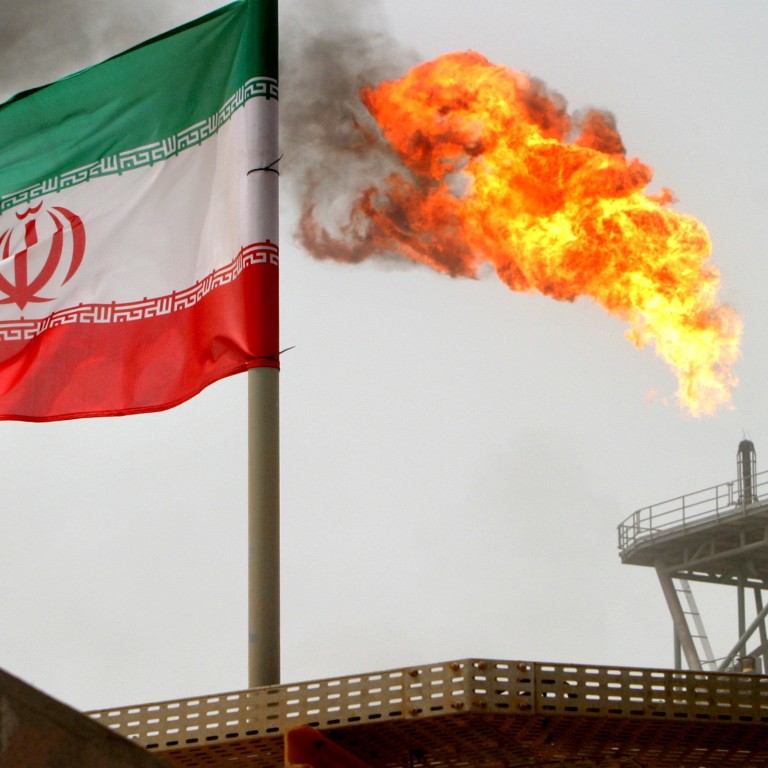
China warned 25-year deal with Iran is ‘hugely risky’ despite hope it will boost influence in Middle East
- Beijing is hoping to boost its influence in the region, but the agreement may cause concern in other countries – especially those hostile to Tehran
- Some observers question whether it is worth Beijing tying itself to a country that is diplomatically isolated and whose economy has been hit by sanctions
Both sides hailed the deal, signed last week by Foreign Minister Wang Yi and his Iranian counterpart Mohammad Javad Zarif, as a key step in elevating their relationship, and Beijing hopes it will boost its influence in the Middle East.
The two sides have not made details of the plan public, while state media has reported only that it involves cooperation in fields such as trade, economics and transport.
The plan did not include any specific contracts and goals, nor did it target any third party, Zhao Lijian, a spokesman for the Chinese foreign ministry told a regular media briefing on Monday.
China’s 25-year deal with Iran marks ‘momentous’ change as ties with US sour, says ex-envoy
However, according to a New York Times report, China agreed to invest US$400 billion in Iran over 25 years in exchange for a steady supply of oil to fuel its growing economy.
Sun Degang, a specialist in Middle East studies at Fudan University, said China may wish to pursue similar arrangements with other countries in the region, including Turkey, the Arab states – many of which are hostile to Iran – or even Israel.
“The comprehensive cooperation plan between China and Iran is a strategic choice made from a global perspective, especially in response to the current situation of the United States and the West undermining the international order,” he told state-run news portal ThePaper.cn.
But other Chinese diplomatic observers warned that the deal, signed with a country sanctioned by the US and facing an uncertain economic outlook, carries “huge risks” and will pose a challenge to China’s foreign policy.
“Iran hopes to tie up with China both politically and economically. This is a challenge to China’s diplomacy and will be a fundamental shake-up of China’s foreign policy,” said an expert from an official think tank who advises the Chinese government on Middle East policy, speaking on condition of anonymity.

“Is it worth China tying itself to a country being sanctioned and isolated?”
Iran’s Fars news agency has said the deal should be considered a political, strategic, economic and cultural programme that pursues comprehensive relations in the long run with clauses on investment and finance as well as mutual support in international forums.
“In the military and defence fields, issues such as training, transfer of defence technologies, counterterrorism and joint exercises have been discussed. One of the highlights is the agreement on trade in national currencies,” the report said.
But the expert who advises the Chinese government on Middle East policy said some of the details might be difficult to achieve, for example, the reported US$400 billion oil deal.
He said that if this figure was correct then it carried a huge risk, but a more general agreement would carry fewer potential downsides.
“China can provide infrastructure in exchange for oil exports under normal circumstances”, he said, but “Iran’s economic and trade environment is not good under sanctions”.
China urges US to seek Iran nuclear talks after ‘new developments’
Another Middle East policy expert based in Shanghai, who is not authorised to speak to overseas media, said the deal may lead to concerns among other Middle East nations that Beijing may be more inclined to focus on its ties with Tehran.
Saudi Arabia – one of Iran’s biggest rivals – would be watching closely to see how much oil China bought from Iran, he said, adding Beijing would need to reassure other regional players that Iran was not the only one getting the focus.
“China does not choose sides in the Middle East, and its policy of non-alignment remains unchanged. The minister’s visit to the Middle East also shows that China has taken a more proactive attitude in the Middle East and will invest more diplomatic power and resources in the region,” he said.
Wang also visited Saudi Arabia, Turkey, the United Arab Emirates, Bahrain and Oman during his tour and proposed a five-point initiative on peace and stability in the Middle East.

